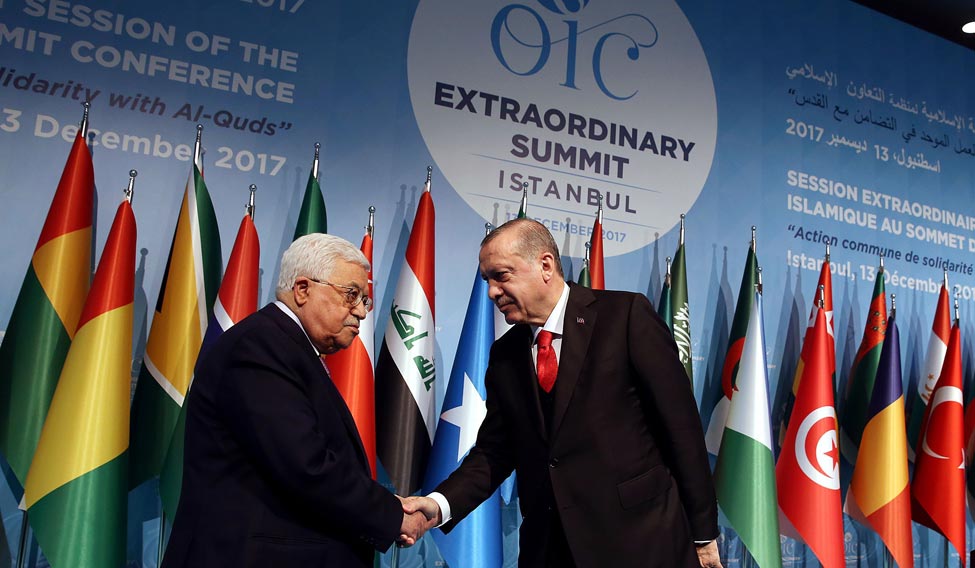One of the world leaders who heaved a sigh of relief when US President Donald Trump announced his decision to recognise Jerusalem as the capital of Israel was Turkish president Erdogan. The Turkish leader was facing an unprecedented political crisis battling charges of corruption in an Iran sanctions case, being prosecuted in a Manhattan federal court. The FBI had cut a deal with Reza Zarrab, a gold smuggler who was charged with violating sanctions against Iran by facilitating the sale of Iranian oil through shell companies. Zarrab, who cut a deal with the FBI, apparently told the prosecutors that the deal was approved by Erdogan. Trump dropped the Jerusalem bomb just in time.
Erdogan swung into action immediately. With Turkey presently holding the chair of the Organisation of Islamic Cooperation, he convened an emergency session of the OIC on December 13 in Istanbul to discuss the issue. Meanwhile, he escalated the rhetoric against Israel, calling it a terrorist state and threatening to cut off diplomatic ties. The emergency meeting was attended among others by Palestinian President Mahmoud Abbas and King Abdullah of Jordan. The summit described the move to recognise Jerusalem as the capital of Israel as null and void and said the decision marked the end of the US as an honest broker in the Arab-Israeli peace process. “We shall not accept any role for the United states in the peace process,” said Abbas. “They have proven their full bias for Israel.”
The meeting declared occupied Jerusalem as the capital of Palestine and called on the international community to do the same. Two days later, on December 15, the Turkish government announced that it would open an embassy in East Jerusalem for the Palestinians, while maintaining the embassy in Tel Aviv for Israel. Turkey already has a consulate in Jerusalem, which has been there since the days when the Ottomans were the overlords of Palestine. Lebanon has also indicated that it would follow Turkey in opening an embassy in East Jerusalem.
Interestingly, in a sign of things that the Palestinian issue could be slipping out of the Arab hands and being taken over by non-Arab nations like Turkey and Iran, the Istanbul summit was largely ignored by Saudi Arabia and its allies. There were unconfirmed reports that Saudi Arabia tried to persuade Abbas and Abdullah from travelling to Istanbul. Saudi Arabia sent its minister of religious affairs to the summit, while the UAE, Bahrain and Egypt sent ministerial level representatives. Iran, however, was represented by its president. Qatar and Kuwait were also represented by their heads of state.
'Some Arab countries have shown very weak responses on jerusalem,” said Turkish Foreign Minister Mevlut Cavusoglu. “It seems some countries are scared of the United States. Turkey has been deepening its engagement with Russia and Iran on a range of critical issues in the Middle East such as Syria and Yemen. Russian President Vladimir Putin was in Ankara on December 11. Standing next to Erdogan, Putin said Trump's Jerusalem decision finished the prospects for peace in the Middle East. He said the final status of Jerusalem should only be decided by talks between Israelis and Palestinians in line with UN resolutions.
The Jerusalem issue has thus revealed the emerging geopolitical realignments in the Middle East where a Russia-backed Iran-Turkey axis is challenging the Saudi-Egypt-UAE bloc, which has the support of the United States.






